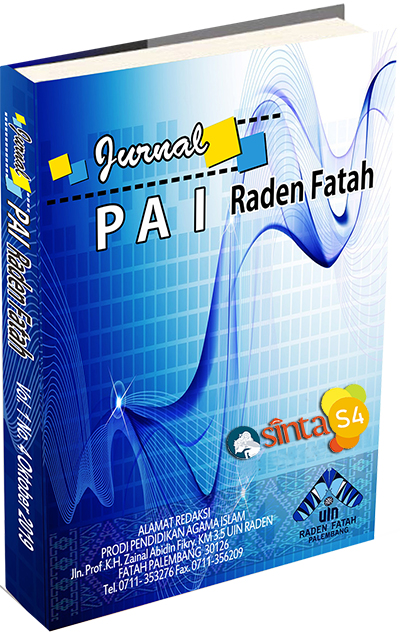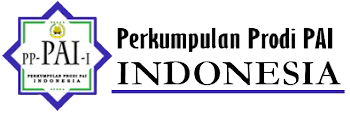Pengembangan Game Edukasi Baamboozle Berbasis Assure Untuk Pendidikan Agama Islam
DOI:
https://doi.org/10.19109/pairf.v7i3.27611Keywords:
Educational Games, Assure Learning Model, PAI LearningAbstract
The ASSURE learning model provides a structured framework for designing effective instruction by integrating suitable media, methods, and materials. This study aims to develop a Baamboozle-based educational game grounded in the ASSURE model for Grade 5 Islamic Religious Education (PAI). The objectives are to assess the game's impact on student engagement, gather feedback from students and teachers, and explore the practical use of the ASSURE model in educational game development. Using a qualitative descriptive approach with a case study design, data were collected through observations, interviews, and documentation, and analyzed through data reduction, display, conclusion drawing, and verification. Results show that the Baamboozle game enhances student interaction with PAI materials. The structured use of the ASSURE model assists teachers in creating engaging, student-centered learning. Additionally, the game's interactive features improve participation, motivation, and understanding, fostering an effective and dynamic learning environment.
References
Aldrich, Clark. The Complete Guide to Simulations and Serious Games: How the Most Valuable Content Will Be Created in the Age beyond Gutenberg to Google. Pfeiffer/Wiley, 2009.
Annetta, Leonard A. “The ‘I’s’ Have It: A Framework for Serious Educational Game Design.” Review of General Psychology 14, no. 2 (2010): 105–12. https://doi.org/10.1037/a0018985.
Arwildayanto, Arwildayanto, Suking Arifin, and Tuni Sumar Warni. Analisis Kebijakan Pendidikan. Bandung: Cendekia Press, 2018.
Astuti, Mardiah, Herlina, Ibrahim, Isma Eka Wardana, Sofiyan Arddiansyah, and Risma Oktariani. “Meningkatkan Kualitas Pendidikan Islam Melalui Implementasi Teknologi Pendidikan.” Journal Student Scientific Creativity Vol.1, no. 5 (2023).
Bicen, Huseyin, and Senay Kocakoyun. “Perceptions of Students for Gamification Approach: Kahoot as a Case Study.” International Journal of Emerging Technologies in Learning (IJET) 13, no. 2 (2018): 72–93. https://doi.org/10.3991/ijet.v13i02.7467.
Dicheva, Darina, Christo Dichev, Galia Agre, and Gennady Angelova. “Gamification in Education: A Systematic Mapping Study.” Educational Technology & Society 18, no. 3 (2015): 75–88.
Fadli, Muhammad Rijal. “Memahami Desain Metode Penelitian Kualitatif.” Jurnal Humanika, Kajian Ilmiah Mata Kuliah Umum 21, no. 1 (2021).
Fujiati, and Sri Lestari Rahayu. “Implementasi Algoritma Fisher Yate Shuffle Pada Game Edukasi Sebagai Pembelajaran.” Cogito Smart Journal Vol.6, no. 1 (2020).
Gee, James Paul. What Video Games Have to Teach Us about Learning and Literacy. Palgrave Macmillan, 2007.
Gokhale, A A. “Collaborative Learning Enhances Critical Thinking.” Journal of Technology Education 7, no. 1 (1995): 22–30. https://doi.org/10.21061/jte.v7i1.a.2.
Idayanti, Umi Nurul. “Pelaksanaan Kegiatan Membaca Al Quran Dalam Meningkatkan Perilaku Keagamaan Siswa Kelas VIII Di SMPN 1 Siman Ponorogo Tahun Ajaran 2016 / 2017.” Skripsi, 2017, 45–47.
Johnson, Larry, Samantha Adams Becker, Veronica Estrada, and Alex Freeman. The NMC Horizon Report: 2014 Higher Education Edition. New Media Consortium, 2014.
Kaca, Gatot, Iqbal Ramdhani, and Nyimas Yunierti Prihatin. “Keefektifan Media Pembelajaran Visual Berbasis Lectora Inspire Terhadap Motivasi Belajar Siswa..” Jurnal PAI Raden Fatah Vol.4, no. 2 (2022).
Kebritchi, Mansureh, Atsusi Hirumi, and Haiyan Bai. “The Effects of Modern Mathematics Computer Games on Mathematics Achievement and Class Motivation.” Computers & Education 55, no. 2 (2010): 427–43. https://doi.org/10.1016/j.compedu.2010.02.007.
Kosilah, and Septian. “Penerapan Model Pembelajaran Kooperatif Tipe Assure Dalam Meningkatkan Hasil Belajar Siswa.” Jurnal Inovasi Penelitian 1, no. 6 (2020): 79–87. https://doi.org/10.47492/jip.vli6.214.
Mardeli, Mardeli. “Teori Kompensasi Emosi.” Tadrib: Jurnal Pendidikan Agama Islam Vol.2, no. 1 (2016).
Mayer, Richard E. “Computer Games in Education.” Annual Review of Psychology 70 (2019): 531–49. https://doi.org/10.1146/annurev-psych-010418-103744.
Media Indonesia. “Teknik Pengumpulan Data Dan Metode Penelitian,” 2022.
Muammar, Haerul, Ahmad Harjono, and Gunawan Gunawan. “Pengaruh Model Pembelajaran Assure Dan Pengetahuan Awal Terhadap Hasil Belajar IPA-Fisika Siswa Kelas Viii SMPN 22 Mataram.” Jurnal Pendidikan Fisika Dan Teknologi Vol.1, no. 3 (2017). https://doi.org/10.29303/jpft.v1i3.254.
Ritzhaupt, Albert D, and Florence Martin. “Development and Validation of the Educational Technologist Multimedia Competency Survey.” Educational Technology Research and Development 62, no. 1 (2014): 13–33. https://doi.org/10.1007/s11423-013-9325-2.
Rohmadi, Rohmadi, and Trysha Yulindaputri. “Pengaruh Kompetensi Kepribadian Guru Terhadap Karakter Tanggung Jawab Siswa.” Tsaqafatuna 5, no. 2 (2023): 84–95. https://doi.org/10.54213/tsaqafatuna.v5i2.204.
Shihab, M. Quraish. Tafsir Al-Misbah. Jakarta: Lentera Hati, 2002.
Soraya, Nyayu. “Lembaga Pendidikan Islam Periode Awal Dalam Perspektif Sejarah.” Tadrib: Jurnal Pendidikan Agama Islam 2, no. 2 (2016): 251–61.
Sugiyono, Sugiyono. Memahami Penelitian Kualitatif. Bandung: Alfabeta, 2016.
———. Metode Penelitian Kuantitatif, Kualitatif, Dan R&D. Jakarta: Alfabeta, 2019.
Sukmawati, ST. Wardatul Ainiyah, and Eny Aulia Rohma. “Pengaruh Game Edukasi Terhadap Keterampilan Berpikir Kritis Peserta Didik ; Studi Kasus SDN Daleman I.” Jurnal Multidisiplin Ilmu Akademik Vol.2, no. 1 (2025).
Sung, Han-Yu, and Gwo-Jen Hwang. “A Collaborative Game-Based Learning Approach to Improving Students’ Learning Performance in Science Courses.” Computers & Education 63 (2013): 43–51. https://doi.org/10.1016/j.compedu.2012.11.019.
Syarnubi, Syarnubi. “Profesionalisme Guru Pendidikan Agama Islam Dalam Membentuk Religiusitas Siswa Kelas IV Di SDN 2 Pengarayan.” Tadrib 5, no. 1 (2019): 87–103.
Trivaika, Erga, and Mamok Andri Senubekti. “Perancangan Aplikasi Pengelola Keuangan Pribadi Berbasis Android.” Nuansa Informatika 16, no. 1 (2022): 33–40. https://doi.org/10.25134/nuansa.v16i1.4670.
Tsaniyatus Sa’diyah. “Penerapan Pembelajaran Pendidikan Agama Islam Dalam Membentuk Karakter Pribadi Yang Islami.” KASTA : Jurnal Ilmu Sosial, Agama, Budaya Dan Terapan 2, no. 3 (2022): 148–59. https://doi.org/10.58218/kasta.v2i3.408.
Wu, Wen-Hsiung, Hsin-Chieh Hsiao, Pei-Lung Wu, Chih-Hung Lin, and Shu-Hua Huang. “Investigating the Learning-Theory Foundations of Game-Based Learning: A Meta-Analysis.” Journal of Computer Assisted Learning 28, no. 3 (2012): 265–79. https://doi.org/10.1111/j.1365-2729.2011.00437.x.












.png)


1.png)



